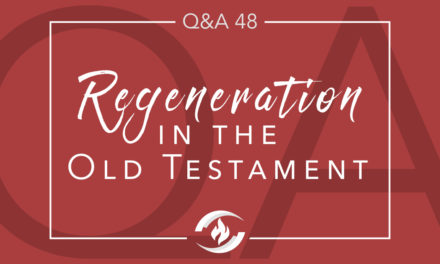Q.
John,
I been studying 1 John 1:9 on forgiveness and prayer, in this chapter 1, there is no mention of forgiveness but there is confession.
“Do Christians have to keep asking for forgiveness for their sins?” A frequent question is “what happens if I sin, and then I die before I have an opportunity to confess that sin to God?” Another common question is “what happens if I commit a sin, but then forget about it and never remember to confess it to God?” Both of these questions rest on a faulty assumption. Salvation is not a matter of believers trying to confess and repent from every sin they commit before they die. Salvation is not based on whether a Christian has confessed and repented of every sin. Yes, we should confess our sins to God as soon as we are aware that we have sinned. However, we do not always need to be asking God for forgiveness. When we place our faith in Jesus Christ for salvation, all of our sins are forgiven. That includes past, present, and future, big or small. Believers do not have to keep asking for forgiveness or repenting in order to have their sins forgiven. Jesus died to pay the penalty for all of our sins, and when they are forgiven, they are all forgiven (Colossians 1:14; Acts 10:43).What we are to do is confess our sins: “If we confess our sins, He is faithful and just and will forgive us our sins and purify us from all unrighteousness” (1 John 1:9). What this verse tells us to do is “confess” our sins to God. The word “confess” means “to agree with.” When we confess our sins to God, we are agreeing with God that we were wrong, that we have sinned. God forgives us, through confession, on an ongoing basis because of the fact that He is “faithful and just.” How is God “faithful and just”? He is faithful by forgiving sins, which He has promised to do for all those who receive Christ as Savior. He is just by applying Christ’s payment for our sins, recognizing that the sins have indeed been atoned for. At the same time, 1 John 1:9 does indicate that somehow forgiveness is dependent on our confessing our sins to God. How does this work if all of our sins are forgiven the moment we receive Christ as Savior? It seems that what the apostle John is describing here is “relational” forgiveness. All of our sins are forgiven “positionally” the moment we receive Christ as Savior. This positional forgiveness guarantees our salvation and promise of an eternal home in heaven. When we stand before God after death, God will not deny us entrance into heaven because of our sins. That is positional forgiveness. The concept of relational forgiveness is based on the fact that when we sin, we offend God and grieve His Spirit (Ephesians 4:30). While God has ultimately forgiven us of the sins we commit, they still result in a blocking or hindrance in our relationship with God. A young boy who sins against his father is not cast out of the family. A godly father will forgive his children unconditionally. At the same time, a good relationship between father and son cannot be achieved until the relationship is restored. This can only occur when a child confesses his mistakes to his father and apologizes. That is why we confess our sins to God—not to maintain our salvation, but to bring ourselves back into close fellowship with the God who loves us and has already forgiven us.
Jerry
A.
Hello Jerry,
Thank you for your question regarding forgiveness. Good thoughts!
Sometimes this can get confusing, but it doesn’t need to. Let me start by addressing your first question, “Do Christians have to keep asking for forgiveness for their sins?
The answer is no, on two bases. First, the condition for salvation is not ongoing, it is a moment in time when one believes in Jesus as Savior (John 6:47). Inherent in believing on Jesus is the realization of the problem of sin and the need for a Savior. Second, the condition of 1 John 1:9 is to confess, not to “ask forgiveness.” Both of these you noted in your comments.
Sin in our lives hinders our fellowship with God—not Him toward us for He loves us unconditionally, but us toward Him. As we agree with God and thus walk in the light, all hindrance to unfettered fellowship is removed. This is a blessed truth. Honesty accesses the cleansing power of the blood and therefore the assurance of a cleared conscience and a clean heart. The joy of a clean heart is one of the blessings of revival.
John
We’d love to hear your thoughts on this subject in the comments section below! If you have a question on another subject, we welcome you to make a submission by clicking here:










